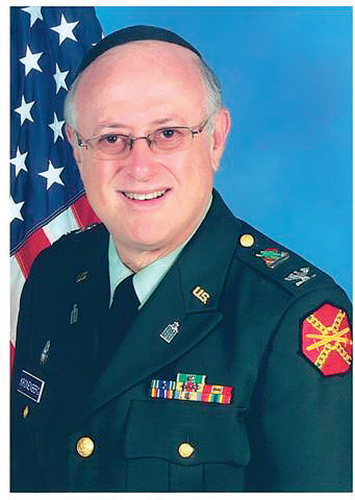
Clifton—Rabbi Ira Kronenberg recalls the impact of words one resident said during his early years at Daughters of Miriam. “I’m not terribly concerned with the [phrase from Psalms] ‘Do not forsake me in my old age,’” he told Rabbi Kronenberg. “I am more concerned with ‘spirit being taken from me,’ referring to the loss of intellect. After 38 years as the rabbi of Daughters of Miriam Center, Rabbi Kronenberg is retiring, but this sentiment has remained with him throughout his years there. Above all, he focused on maintaining dignity for the residents and allowing them to be as independent as possible.
Founded in 1921, Daughters of Miriam Center, located in Clifton, New Jersey, is a long-term care and sub-acute facility providing broad-based services to seniors. They have a 210-bed skilled facility, including a 66-bed sub-acute care wing, a dementia care pavilion, a rehabilitation program, a sheltered workshop, hospice care, a respite program, and senior housing with supportive services.
Rabbi Kronenberg used many different skills from his eclectic background throughout his years at Daughters of Miriam. Having received smicha from RIETS, he looked to be of service to the Jewish community. His rabbi suggested the U.S. Army’s chaplaincy service. Even after he left active duty, he remained in the reserves and was called back to active duty in Iraq and Afghanistan. Some residents at the nursing home are veterans themselves, and therefore appreciated his time in the military, and even requested that he come in his uniform.
Rabbi Kronenberg also served as a licensed clinical social worker, running groups for families and caregivers. Many of these groups focused on addressing individuals with dementia and protecting the rights and responsibilities of the residents. Throughout these groups, the main focus remained providing care with dignity.
“Working in a nursing home is very different from being a pulpit rabbi,” explained Kronenberg. “There is a sense of instant gratification that is unique to this environment. Just giving someone your attention, listening to them and interacting with them is gratifying.”
Even as residents may have had to cut back on levels of independence, Rabbi Kronenberg’s minyan gave them the resource of a full, real davening, with a mechitzah. Minyanim were davened at the appropriate times, and the Yomim Tovim were observed according to Jewish law. The pride in Kronenberg’s voice was evident as he recounted the adherence to Jewish law in all the aspects of the various holidays. The Sukkah available at Daughters of Miriam is kosher and allowed the residents to partake in the holiday festivities to the best of their abilities. On Pesach, Kronenberg led a full seder, without starting before the actual zman for Pesach.
The seriousness with which Kronenberg took his minyan was reflected in the respect given from those who attend. Even residents who may sometimes have had issues with decorum, sat through the davening beautifully. “They may not be aware of everything happening around them, but they know that they are in a shul and behave accordingly,” says Kronenberg. “We try to keep the davening close to what they know, even including traditional tunes.”
Kronenberg stressed the importance of bringing children to be a part of a nursing home or other senior care facility. “People hesitate to bring their kids,” he said, “but kids are wonderful. Residents literally light up to see the next generation of Jewry flourish right in front of them.”
Another benefit of his role as an LCSW was supervising social work students. Many students would come from Touro and Wurzweiler, as well as other social work programs. In addition, students from local yeshiva high schools came to visit the residents as well. Rabbi Kronenberg took pride in working with another generation of Jewish students and seeing them interact with the residents.
Kronenberg prides himself on raising his three children as part of Daughters of Miriam. Visiting residents of a nursing home and davening in the shul there were all part of their family’s routine. Indeed, Kronenberg’s daughter, Mirlana Morris, who lives in Bergenfield, has followed in her father’s footsteps and is a social worker in the geriatric population.
Over his years, Kronenberg saw many changes in the demographics of Daughters of Miriam. In his first years there, the only residents who stayed for Pesach stayed because they did not have anyone who could take them, or because they did not trust the kashrus of the available family. Now, the majority of residents have frum families, and even when the residents themselves are not religious, they have children and grandchildren who are.
As Kronenberg maps out his plan for retirement, his first priority is to spend more time with his children and grandchildren. “I plan to make time for babysitting,” Kronenberg says affectionately. While two of his children live locally, he has a son in Israel, and looks forward to spending more time with his family there. He also had the opportunity to learn daf yomi while in Iraq and Afghanistan. He enjoyed the incredible opportunity to learn the Talmud miles from where it was actually written. With retirement, he hopes to have the chance to continue learning, solely for the enjoyment of learning.
By Jenny Gans













